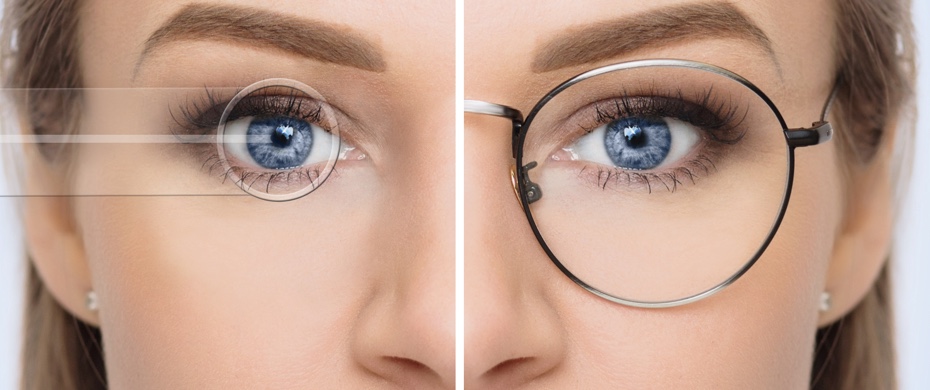What is LASIK surgery and for whom is it suitable?
The desired result of LASIK eye surgery is to bend (refract) light rays to focus more precisely on your retina rather than at some point beyond or short of your retina. The goal of LASIK eye surgery is to produce clearer, sharper vision.
LASIK eye surgery may be an option for you if you have one of these vision problems:
- Nearsightedness (myopia). When your eyeball is slightly longer than normal or when the cornea curves too sharply, light rays focus in front of the retina and blur distant vision. You can see objects that are close more clearly, but not those that are far away.
- Farsightedness (hyperopia). When you have a shorter than average eyeball or a cornea that is too flat, light focuses behind the retina instead of on it. This makes near vision and sometimes distant vision blurry.
- Astigmatism. When the cornea curves or flattens unevenly, the result is astigmatism, which disrupts focus of near and distant vision.

LASIK surgery complications
As with any surgery, LASIK eye surgery carries risks, including:
- Undercorrections. If the laser removes too little tissue from your eye, you won’t get the clearer vision results you were hoping for. Undercorrections are more common for people who are nearsighted.You may need another refractive surgery (enhancement surgery) within a year to remove more tissue.
- Overcorrections. It’s also possible that the laser will remove too much tissue from your eye. Overcorrections may be more difficult to fix than undercorrections.
- Vision returning to pre-surgery vision. Over time, your eyes may slowly return to the level of vision you had before surgery. This may happen due to certain conditions, such as abnormal wound healing, hormonal imbalances or pregnancy.
- Visual loss or changes. Rarely, you may experience loss of vision due to surgical complications. Some people also may not see as sharply or clearly as previously.
- Astigmatism. Astigmatism can be caused by uneven tissue removal. It may require additional surgery, glasses or contact lenses.
- Glare, halos and double vision. After surgery you may have difficulty seeing at night. You might notice glare, halos around bright lights or double vision.Even when a good visual result is measured under standard testing conditions, your vision in dim light (such as at dusk or in fog) may be reduced to a greater degree after the surgery than before the surgery.
- Dry eyes. LASIK causes a temporary decrease in tear production. For the first six months or so after your surgery, your eyes may feel unusually dry as they heal. Dry eyes can reduce the quality of your vision.Your eye doctor might recommend that you use eyedrops during this time. If you experience severe dry eyes, you could opt for another procedure to get special plugs put in your tear ducts to prevent your tears from draining away from the surface of your eyes.
- Flap problems. Folding back or removing the flap from the front of your eye during surgery can cause complications, including infections, excess tears and inflammation.The outermost corneal tissue layer (epithelium) may grow abnormally underneath the flap during the healing process.
Conditions that increase risks
Certain health conditions can increase the risks associated with LASIK surgery or make the outcome less predictable. Doctors may not recommend laser surgery for you if you have certain conditions. These conditions include:
- Autoimmune disorders, such as rheumatoid arthritis
- Immunodeficiency conditions caused by immunosuppressive medications or HIV
- Persistent dry eyes
- Unstable vision due to medications, hormonal changes, pregnancy, breast-feeding or age
- Several eye conditions, such as keratoconus, keratitis, uveitis, herpes simplex affecting the eye area, glaucoma, cataracts, eye injuries or lid disorders
LASIK may not be advisable if you:
- Have fairly good overall vision
- Have very large pupils or thin corneas
- Have a job that may be affected if you have the procedure
- Have age-related eye changes that cause you to have less clear vision (presbyopia)
- Participate in contact sports that may be associated with blows to the face
If you’re considering LASIK eye surgery, talk to your doctor about your questions and concerns. He or she can explain how the surgery might benefit you and help put the risks in perspective. Your doctor will discuss with you whether you’re a candidate for the procedure.
Also to learn more about other surgeries such as PRK and Femto-LASIK read other pages.